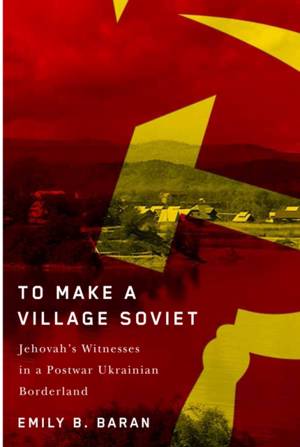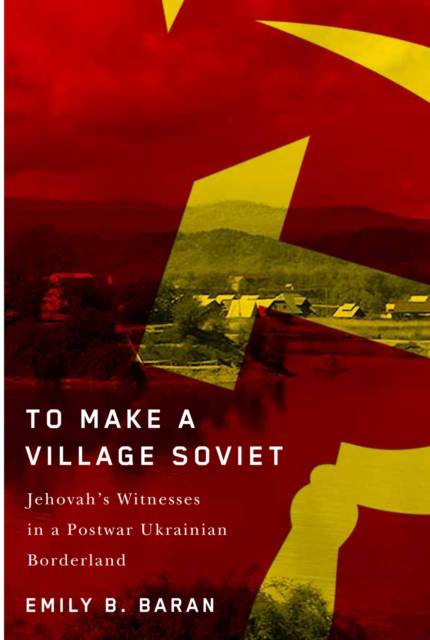
Je cadeautjes zeker op tijd in huis hebben voor de feestdagen? Kom langs in onze winkels en vind het perfecte geschenk!
- Afhalen na 1 uur in een winkel met voorraad
- Gratis thuislevering in België vanaf € 30
- Ruim aanbod met 7 miljoen producten
Je cadeautjes zeker op tijd in huis hebben voor de feestdagen? Kom langs in onze winkels en vind het perfecte geschenk!
- Afhalen na 1 uur in een winkel met voorraad
- Gratis thuislevering in België vanaf € 30
- Ruim aanbod met 7 miljoen producten
Zoeken
To Make a Village Soviet
Jehovah's Witnesses and the Transformation of a Postwar Ukrainian Borderland
Emily B Baran
€ 53,45
+ 106 punten
Uitvoering
Omschrijving
In June 1949 the Soviet state arrested seven farmers from the village of Bila Tserkva. Not wealthy or powerful, the men were unknown outside their community, and few had ever heard of their small, isolated village on the southwestern border of Soviet Ukraine. Nevertheless, the state decided they were dangerous traitors who threatened to undermine public order, and a regional court sentenced them to twenty-five years of imprisonment for treason. In To Make a Village Soviet Emily Baran explores why a powerful state singled out these individuals for removal from society. Bila Tserkva had to become a space in which Soviet laws and institutions reigned supreme, yet Sovietization was an aspiration as much it was a reality. The arrested men belonged to a small and misunderstood religious minority, the Jehovah's Witnesses, and both Witnesses and their neighbours challenged the government's attempts to fully integrate the village into socialist society. Drawing from the case file and interviews with the families of survivors, Baran argues that what happened in Bila Tserkva demonstrates the sheer ambition of the state's plans for the Sovietization of borderland communities. A compelling history, To Make a Village Soviet looks to Bila Tserkva to explore the power and the limits of state control - and the possibilities created by communities that resist assimilation.
Specificaties
Betrokkenen
- Auteur(s):
- Uitgeverij:
Inhoud
- Aantal bladzijden:
- 256
- Taal:
- Engels
- Reeks:
Eigenschappen
- Productcode (EAN):
- 9780228010555
- Verschijningsdatum:
- 15/08/2022
- Uitvoering:
- Paperback
- Formaat:
- Trade paperback (VS)
- Afmetingen:
- 150 mm x 226 mm
- Gewicht:
- 385 g

Alleen bij Standaard Boekhandel
+ 106 punten op je klantenkaart van Standaard Boekhandel
Beoordelingen
We publiceren alleen reviews die voldoen aan de voorwaarden voor reviews. Bekijk onze voorwaarden voor reviews.









